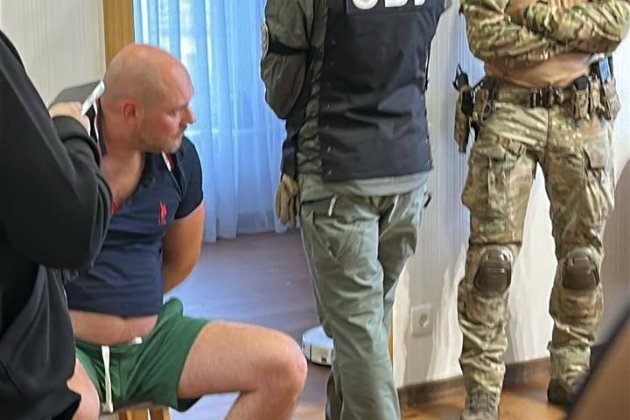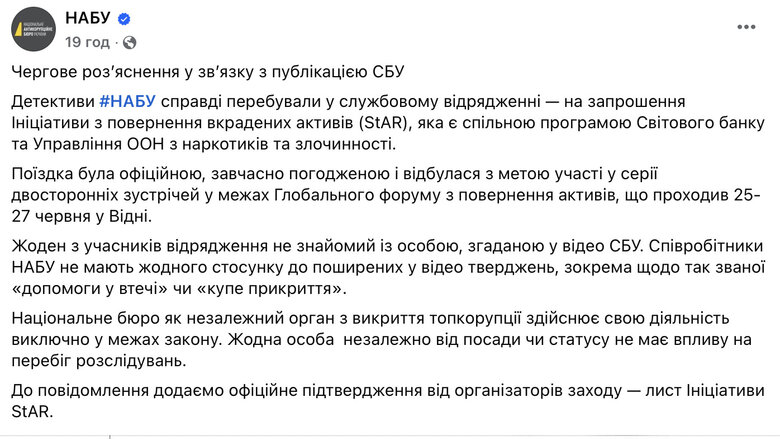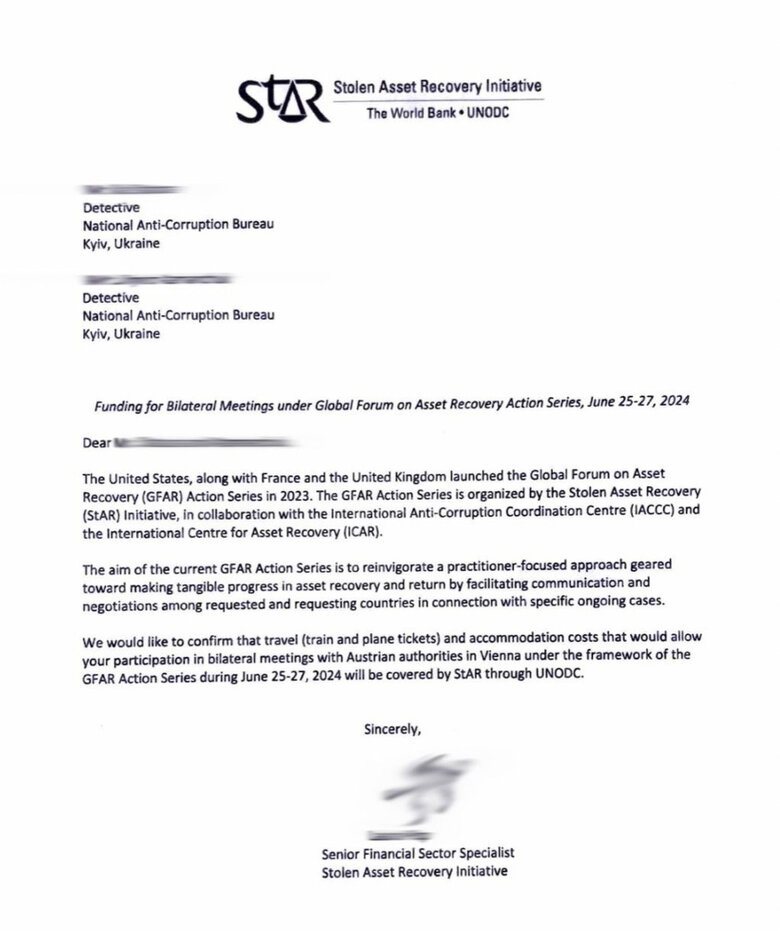Black days for anti-corruption activists: from SSU raids to destruction of SAPO and NABU independence
On Tuesday, the parliament voted on a draft amendment to the Criminal Code of Ukraine that eliminated the independence of NABU and SAPO. The dismantling of the anti-corruption agencies was supported by 263 deputies.
The opposition warned as early as Monday that the authorities were planning to destroy the anti-corruption agencies, but they did not anticipate how quickly and disgracefully the main events would unfold. Nor did they expect that the coalition of the Servants, Batkivshchyna (Fatherland), and Opposition Platform – For Life (OPFL) parties would eliminate the primary threat to themselves.
Searches by the SSU
Everything began on Monday with mass searches of NABU detectives, organized by the Security Service of Ukraine (SSU). Over 70 searches were conducted without a court warrant, as they were related to charges of treason.
As a result of the searches, one of the heads of the interregional detective departments of the National Anti-Corruption Bureau, Ruslan Mahamedrasulov, was detained. He is accused of conducting business in the Russian Federation and communicating with Russian agents.
According to recordings, the detective himself arranged the sale of cannabis in Dagestan under a state program.
The detective’s father, Sentiabr Mahamedrasulov, holds Russian citizenship; however, the NABU employee failed to disclose this fact when applying for access to state secrets, thereby violating the law.
"This high-ranking Bureau official was in close contact with the fugitive MP from the banned OPFL party, Fedir Khrystenko, who is linked to Russian special services and, as the investigation has established, has significant influence over NABU’s activities, which will be reported separately," the SSU statement said.
During searches of Khrystenko’s informants, numerous analytical reports were found that should have been NABU’s classified information.
MP from the banned OPFL party, Fedir Khrystenko, left Ukraine 10 days before the full-scale invasion.
According to Chesno, he was one of the main parliamentary absentees, last voting in the summer of 2021.
Radio Liberty reports that he left Ukraine on February 14, 2022, and has not returned since. In his 2022 annual declaration, he stated that he lives with his family in Poland, in an apartment measuring 173 square meters.
Besides the newly rented accommodation in Poland, the deputy declared ownership of an apartment in Russia measuring 176 square meters and three parking spaces. This Moscow property has been registered to his wife, Maryna Khrystenko, since 2018.
Yesterday, the deputy was charged in absentia with treason.
The SSU also established that Khrystenko’s wife lent her car to the wife of detective Skomarov to leave the country.
Regarding Skomarov himself, it is known that the SSU had concerns about him during the competition for the head of the Bureau of Economic Security. However, it turns out that the SSU is currently not interested in his father’s citizenship obtained in the occupied territories.
"The investigation found that, in case of winning the competition, Ukrainian oligarch Ihor Kolomoiskyi expected Skomarov, as the new head of the BES, to facilitate the closure of the criminal proceedings against him. This information is confirmed by evidence of correspondence between Kolomoiskyi and one of his subordinates," the SSU statement reads.
It should be noted that even earlier, the new leadership of NABU and SAPO had concerns regarding leaks of materials related to Kolomoiskyi’s case. In one conversation with the author, Semen Kryvonos mentioned that whenever NABU took any action, by the next morning Kolomoiskyi’s lawyers were already standing outside the Bureau’s office.
The author also heard from the previous NABU leadership certain criticisms regarding Skomarov’s actions in the case of the detention of the plane belonging to businessman and Kolomoiskyi’s partner, Hennadii Boholiubov, several years ago.
Another interesting detail, according to the publication’s sources, is that Skomarov did not receive a single vote in the final round of the BES competition, partly due to Artem Sytnyk’s negative review of his work (by contrast, Sytnyk’s review of Oleksandr Tsyvinskyi was positive).
Currently, however, SSU officers accuse NABU detectives of assisting Boholiubov’s departure abroad. According to the SSU statement, two NABU employees, subordinates of Skomarov, accompanied Boholiubov on a train to Vienna.
Later, NABU denied this accusation, providing a letter stating that the employees were traveling for training. "Honestly, without any communication or sharing a train compartment, it will be very difficult to prove that this was intentional accompaniment rather than mere coincidence," a Censor.NET source said.
The second case concerns Viktor Husarov, whom the SSU accused of "espionage" in favor of the FSB. The security service claimed that his actions were coordinated by Dmytro Ivantsov, deputy head of Yanukovych’s security, who helped the former president relocate to Russia in February 2014 while he himself remained in Crimea.
The SSU stated that it had warned NABU about this employee. However, the Bureau noted that the story was somewhat different, pointing out that correspondence between the detective and Yanukovych’s security guard took place between 2012 and 2015.
"On August 1, 2024, SSU officers conducted a search of a NABU employee’s residence outside the city and his vehicle based on a court warrant. After the search, he was summoned for questioning by subpoena. On the appointed date, he appeared at the SSU and was interrogated regarding the same circumstances of transmitting information about individuals to the aforementioned State Security Administration (SSA) employee. In August 2024, the SSU orally informed that during the investigation of a treason case involving the mentioned former SSA employee, no facts indicating the NABU employee’s involvement were established, nor any confirmation that he was aware of the SSA employee’s cooperation with the Russian Federation exists. There is no evidence of participation in anti-state activities," NABU stated.
One way or another, Husarov was arrested today.
"Basically, everything that happened on Monday was a technical reflection of NABU’s actions. Those early searches, the carpets of money, all of that was initiated by NABU. The SSU’s actions even fit with something a detective once said: ‘So, what kind of evidence do you need when it’s already obvious?’ Today, that ‘already obvious’ was used against him," a Censor.NET source said.
While these two SSU arrests raise certain questions and reflections, they don’t seem completely baseless.
Old car accidents and inability to document injuries
However, they do not explain the more than 70 searches. This point was emphasized today by Kryvonos at a briefing, saying, "We support the fight against traitors, but there are nuances in the approach."
Against this background, reports about traffic accidents involving NABU detectives from four years ago seemed much more clumsy.
The key question: why were these accidents kept silent about and under investigation for so long? After all, this is not an economic scheme.
"As far as I know, these car accidents were used to blackmail NABU officers for years, but this time they really went all out and pulled everything they could," a source told the publication.
Today, at a briefing, NABU Director Semen Kryvonos stated that, in addition, detectives who suffered bodily injuries during the searches were unable to properly document their bruises.
It is known that Ukrainska Pravda reported that one detective was forcibly made to open a swollen eye caused by beatings in order to unlock his phone via FaceID.
"Yesterday, detectives who were not detained and against whom force was used during (investigative actions) turned to lower-level medical institutions, but they were either refused or met with reluctance to conduct examinations," Kryvonos said, adding that the team was sent by the Kyiv City State Administration.
Of course, the biggest question was whether the SSU seized covert investigative materials from SAPO yesterday. This was mentioned in a SAPO statement, but the SSU denied it.
Sources within anti-corruption agencies gave very different comments on the situation — some said no sensitive information was seized, while others claimed "enough" was taken.
SAPO Chief Oleksandr Klymenko stated at today’s briefing that "an inspection of confidentiality compliance is currently underway at SAPO." However, no law enforcement agency, including the Security Service, currently has access to the case files. "This was an appointed security check… Accordingly, this created risks of possible access to the materials. At present, such access does not exist," the SAPO chief explained.
Destruction of independence
However, by Tuesday morning, it became clear that what was seized during the searches was insignificant compared to what was being prepared in the Parliament.
As of 10 a.m., there were no signs of trouble.
Then suddenly, Anastasiia Radina reported amendments to draft law 12414 concerning changes to the Criminal Code of Ukraine. The draft was scheduled to be considered today in its second reading.
The amendments published by NV.UA included:
- Taking cases away from NABU and assigning investigations to other agencies;
- Acting as the de facto head of SAPO and reassigning the prosecutor’s authority to other prosecutors;
- Issuing mandatory written instructions to NABU detectives;
- Independently closing cases against top officials under suspicion.
SAPO’s procedural autonomy is also significantly limited because:
- SAPO prosecutors will lose the ability to determine NABU’s jurisdiction in exceptional cases;
- SAPO head will no longer be able to resolve jurisdictional disputes in cases NABU may investigate;
- SAPO head will not have authority to amend appellate and cassation appeals filed by SAPO prosecutors.
Recall that previously, no other agencies had the right to investigate cases legally assigned to NABU. Also, jurisdiction over NABU cases could not be reassigned to other bodies.
The consequences of transferring jurisdiction were clearly seen in 2021 with the destruction of Oleh Tatarov’s case, which was taken from NABU and SAPO.
"Right now, Tatarov has completely crushed them. Apparently, many underestimated just how much of a Professor Moriarty he is, and that you can only play against him if your team has Sherlock Holmes," said one of the publication’s sources.
The heads of NABU and SAPO stated that the draft law, approved by 263 deputies, effectively destroys their independence. Commenting on the risks posed by yesterday’s searches, NABU Director Semen Kryvonos emphasized that compared to the adopted law, those risks are minor.
Meanwhile, the law "directly affects the independence of the anti-corruption infrastructure."
"It will impact our efficiency and the progress of criminal proceedings. Any criminal cases can now be requested, read, reviewed—materials, covert investigative actions, everything..." Kryvonos noted.
The NABU Director and SAPO head expressed hope that the president will not sign this law.
But there is little belief in this.
Moreover, Semen Kryvonos directly hinted that he and his colleague may face continued pressure and blackmail.
According to Censor.NET, this has already happened, in particular, Kryvonos is being blackmailed with a criminal case related to voter bribery in 2009, in which he was involved. Back then, it concerned the adoption of a child, and now it may be revealed that the child actually lived with the mother who agreed to this arrangement.
So, the dark days for anti-corruption officials are just beginning…
Tetiana Nikolaienko, Censor.NET





